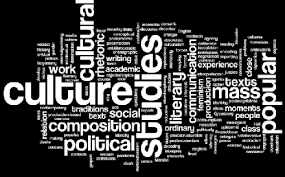Welcome to my blog,
This blog is part of our study. This Thinking activity is based on Cultural studies and was assigned by Dr. Dilip Barad sir Department of English MKBU.In this task, we have to discuss on our understanding of CS in practice. Write which approach of CS is applied in the reading of play 'Hamlet', 'poem 'Coy Mistress' and novel 'Frankenstein'.
First, we discuss What is Cultural studies?
Cultural studies is an interdisciplinary field that explores the complex interplay between culture, society, and power. It examines how culture, including media, literature, art, and everyday practices, influences and is influenced by social, political, and economic factors. Cultural studies often delve into issues of identity, representation, and ideology, analyzing how they shape our understanding of the world. Scholars in this field draw from various disciplines, including sociology, anthropology, literature, media studies, and more, to investigate how culture reflects and shapes the values, beliefs, and behaviors of societies.
Write which approach of CS is applied in the reading of play 'Hamlet', 'poem 'Coy Mistress' and the novel 'Frankenstein'.
Hamlet:
"Hamlet" often encompass various perspectives, depending on the specific analysis and research question.
1. Historical and Contextual Analysis: This approach examines the play within the historical and socio-political context of the Elizabethan era. It explores how the themes, characters, and conflicts in "Hamlet" relate to the political climate, religious tensions, and cultural norms of Shakespeare's time.
2. Feminist Cultural Studies: This approach focuses on the portrayal of women in the play, including characters like Ophelia and Gertrude. It explores gender dynamics, power structures, and how female characters are represented in the context of the patriarchal society of the time.
3. Postcolonial Cultural Studies: Some analyses consider how "Hamlet" reflects or challenges colonialist and imperialist themes, especially in the context of European expansion and exploration during the Renaissance.
4. Performance and Reception Studies: This approach looks at how "Hamlet" has been performed, adapted, and received throughout history. It explores how different productions and adaptations of the play reflect cultural changes and interpretations over time.
5. Psychoanalytic Analysis: Drawing from Freudian or psychoanalytic theories, scholars examine the psychological aspects of characters, particularly Hamlet himself, and how their inner conflicts and motivations relate to broader cultural and societal themes.
Coy Mistress:
In the reading of the poem "To His Coy Mistress" by Andrew Marvell, several cultural studies approaches can be applied, depending on the research question and focus of analysis:
1. Feminist Cultural Studies: This approach explores the representation of women in the poem and examines how gender dynamics and power imbalances are portrayed. It may address issues related to female agency, desire, and societal expectations.
2. Historical Context and Materialism: Analyzing the poem within the historical and socio-political context of the 17th century, considering how economic and social factors might influence the themes of love and time in the poem.
3. Psychoanalytic Analysis: Examining the psychological and emotional aspects of the speaker's persuasion and the coyness of the mistress, drawing from psychoanalytic theories to understand the motivations and desires of the characters.
4. Queer Theory: This approach explores how the poem's themes of desire and sexuality may transcend traditional gender boundaries, inviting interpretations related to sexual identity and non-normative relationships.
These approaches can help illuminate different aspects of the poem and its cultural implications.
Frankenstein:
The novel "Frankenstein" by Mary Shelley can be analyzed using various cultural studies approaches, depending on the research question and the specific aspects of the novel you want to explore. Some common cultural studies approaches applied to "Frankenstein"..
1. Science and Technology Studies: This approach examines how the novel reflects the anxieties and ethical considerations associated with scientific advancements, especially in the context of the early 19th century when scientific discoveries were rapidly changing society.
2. Postcolonial Cultural Studies: Analyzing themes of 'otherness' in the novel, particularly in the portrayal of the creature. This approach considers how the creature's status as an outsider can be related to broader postcolonial theories of identity and difference.
3. Historical Context: Examining the novel within the historical context of the Romantic period, including its links to the Romantic literary movement and the societal values and concerns of the time.
4. Environmental and Ecocritical Studies: Exploring how the novel engages with environmental themes, including the consequences of human actions on the natural world, which is evident in the creature's interactions with the environment.
The choice of cultural studies approach depends on the themes and aspects of "Frankenstein" you want to investigate.
Work cited:
https://chat.openai.com/share/400a0192-762c-491a-86b0-d0afeda79984
Thank you for Reading and Visiting...








No comments:
Post a Comment